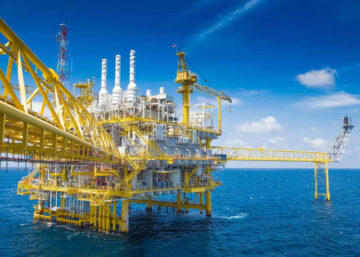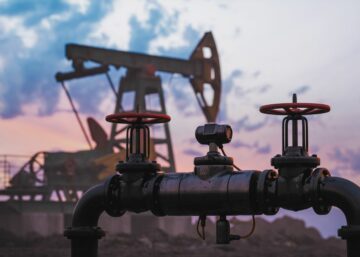One of the largest solar plants in the world is currently being built in Oman. The plant dubbed Miraah, created by GlassPoint for Petroleum Development Oman, was designed purely to boil water for use in oil production rather than to generate electricity. The plant will eventually produce the equivalent of 1 GW of power and will replace a less energy efficient natural gas method currently in use.
The Miraah project will feature rows of curved mirrors that will be focused on a boiler tube containing water. Unlike conventional concentrated solar plants that use heat to produce steam to drive a turbine and generate electricity, the steam created by the Mirraah plant will be used in nearby oil fields to loosen heavy oil so it can be more easily pumped to the surface.
Since much of the easily extracted oil has already been pumped, companies are resorting to more complex and expensive processes called Enhanced Oil Recovery (EOR) to access the more difficult to extract heavier oil that now makes up the majority of the world’s remaining oil reserves.
The leading EOR method to help extract the heavier oil is called steam flooding, whereby steam is injected into an oil reservoir to heat the oil and reduce its viscosity making it easier to pump to the surface. But that method currently requires large amounts of natural gas to produce the steam, which is also increasing the demand for that energy source. According to GlassPoint, it can take the equivalent of one barrel of oil to produce every five.
The primary benefit of the Miraah solar plant will be that it will replace the less efficient and more environmentally impactful natural gas method. The plant is expected to save 5.6 trillion British Thermal Units (BTUs) of natural gas each year, or about the amount of gas it takes to provide residential electricity to over 209,000 people in Oman.
GlassPoint said the Miraah project will generate an average of 6,000 tons (5,443 tonnes) of solar-produced steam daily, which will also make it the largest solar EOR installation in the world. Once completed, Miraah will reduce gas consumption by a significant but as yet undetermined amount.
Once completed, the project will include 36 self-cleaning glass house modules enclosing the solar mirrors to protect them from dust and the elements. The timeline for completion of the entire Miraah project is yet to be determined, but the first steam generation is expected by the end of 2017. The project will cover more than 3 sq km (1.2 sq mi) at a cost of US$600 million.



